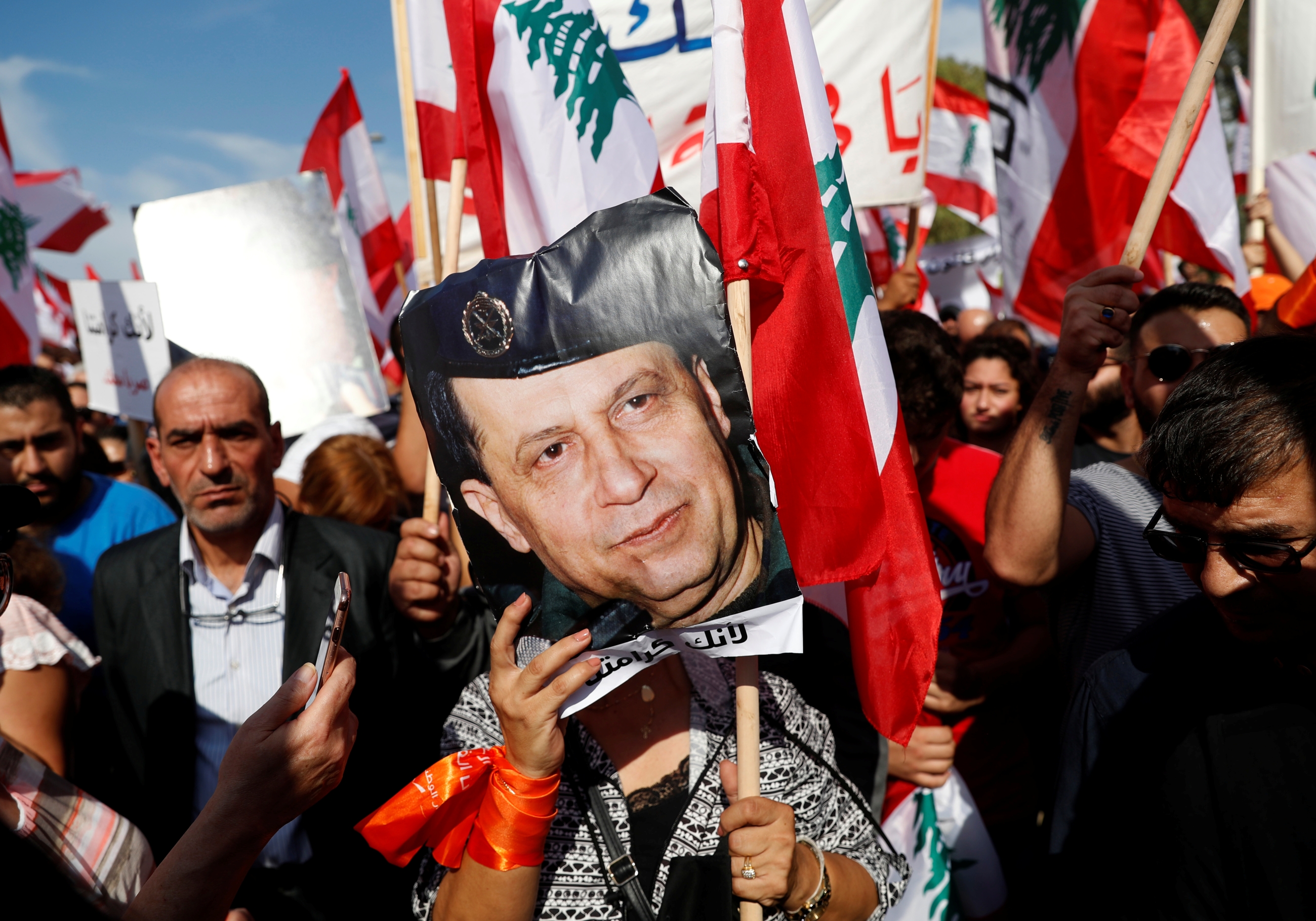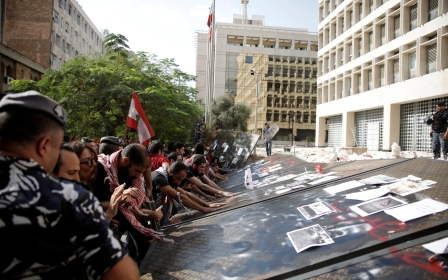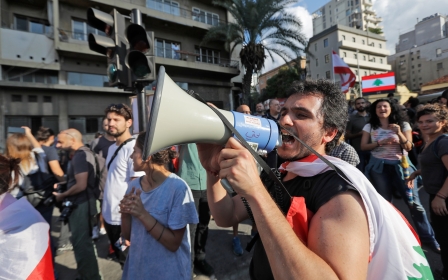Lebanon's president tells protesters to go home or risk 'catastrophe'

Lebanese demonstrators have blocked roads in the capital Beirut and other parts of the country after a speech by President Michel Aoun in which he urged them to get out of the streets and stop their protest movement.
In a televised interview on Tuesday, Aoun said the government had heard the protesters' demands and warned of a "catastrophe" should they continue demonstrating, Reuters news agency reported.
"If you continue in this way, you will strike Lebanon and your interests ... I am placing you in front of this choice," Aoun said.
"We are working day and night to get the situation in order. If they keep going, there is a catastrophe. If they stop, there is still room for [us] to fix things," he said.
After the broadcast, protesters burned tyres to block roads across Lebanon, Reuters said, citing the country's National News Agency.
"We're going to block the roads again to increase the pressure and oust the president," Haytham al-Darazi, a 36-year-old protester in Beirut, told AFP after Aoun's speech.
The Lebanese president's remarks came as thousands of people have taken to the streets across Lebanon to demand a transitional government that would tackle widespread corruption and avert a potential economic collapse.
In his interview, Aoun said formal consultations to nominate the country's next prime minister could begin later this week, and that the next government would be composed of both experts and politicians.
"A technocrat government cannot define the policy of the country ... and I back forming a government that is half political and half technocrat," he said.
That's a reversal from what Aoun said last month, when he pledged that the next government would be made up of individuals who have "expertise and experience, not political loyalties".
Former Lebanese Prime Minister Saad Hariri, who resigned from his position on 29 October amid the protest movement, was hesitant about taking up the post again, Aoun added.
"I met Hariri and I found him hesitant between yes and no," he said.
Widespread protests
The protests began on 17 October after the Lebanese government announced a tax on internet-powered, cell phone applications including WhatsApp.
However, the unrest has moved far beyond the "WhatsApp tax", which has been done away with, and protesters are calling now for an end to corruption and sectarianism.
They have also called on Aoun to resign from the presidency.
The Lebanese leader, however, has vowed to remain in power.
Earlier on Tuesday, Aoun met with United Nations Special Coordinator for Lebanon Jan Kubis, who urged the Lebanese leader to "maximally accelerate the process of the formation of the new government" and choose a new prime minister.
Lebanon has struggled under a failing economy, and the past month of protests has paralysed the country.
On 9 November, Middle East Eye reported that Lebanon was forced to stop several petrol stations from pumping due to a shortage of US dollars.
Aoun has urged lawmakers to establish an anti-corruption commission, and previously said he stands with the protesters in demanding an end to sectarianism.
On Tuesday, he urged Lebanese citizens not to rush to the banks to withdraw their money, which he said was safe, Reuters reported.
Middle East Eye propose une couverture et une analyse indépendantes et incomparables du Moyen-Orient, de l’Afrique du Nord et d’autres régions du monde. Pour en savoir plus sur la reprise de ce contenu et les frais qui s’appliquent, veuillez remplir ce formulaire [en anglais]. Pour en savoir plus sur MEE, cliquez ici [en anglais].




